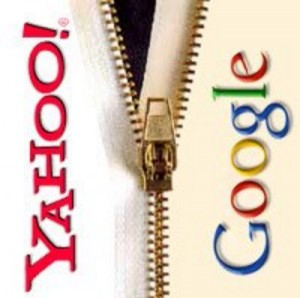16 Dec 2008
The Index on Censorship /TR Fyvel Book Award
In the late 1990s French Journalist Jean Hatzfeld visited two Rwandan villages and interviewed fourteen survivors of the 1994 massacre. In 2000 Hatzfeld returned to interview ten men who were later put on trial and convicted for their part in the genocide. The findings of the interviews were published in the two books Into The Quick of Life: The Rwandan Genocide: The Survivors Speak and A Time for Machetes: The Killers Speak.
The Index on Censorship Film Award
Turtles Can Fly by Bahman Ghobadi is a thought-provoking film about two refugees in the region of Kurdistan, whose bodies and souls have been irreparably damaged by Saddam Hussein’s brutal legacy.
The Index on Censorship/Hugo Young Award For Journalism
Sihem Bensedrine is editor of the banned and now secretly published (online) magazine Kalima. Throughout her career she has been harassed and intimidated by officials for highlighting Tunisia’s lack of freedom of expression and was once briefly imprisoned for discussing corruption in an interview for a London-based TV station. On 15 October 2008 the web content of the newspaper was totally destroyed by an attack.
The Index on Censorship Law Award
Beatrice Mtetwa is a prominent media and human rights lawyer who works to defend and protect journalists in Zimbabwe who have been detained and harassed, regardless of regular threats to her personal safety. She has won acquittals for dozens of journalists arrested under Zimbabwe’s repressive media laws.
The Index on Censorship Whistleblower Award
Huang Jingao, a local Communist Party official, generated a national sensation in August 2004 by posting an open letter on a party website. Therein he complained that his efforts to investigate and prosecute corruption were thwarted by high-level party and governmental officials. In 2005, he was sentenced to life imprisonment.
15 Dec 2008 | Uncategorized
There was a curious coda to the Tunisian government’s attempt to sabotage a debate on the parlous state of free expression in Tunisia, which tail-ended a conclave of journalists and publishers in Beirut at the weekend.
Having successfully banned keynote speaker Mohammed Abbou from flying to the Lebanese capital, the Tunis authorities dispatched a gaggle of officials – they were too middle aged and moustachioed to qualify as a gang – to bust up what was left.
With Index on Censorship in the chair, the panel was reduced to two veteran critics of the Tunis state, Neziha Rejiba and Index award winner Sihem Bensedrine, who read the speech that human rights lawyer Abbou had planned to deliver.
The pro-government supporters settled in for the Q&A, initially content to make complex appeals to separate media rights from human rights (not explaining how) and issue sour pronouncements on imperialism and Iraq.
But as it became clear that the chair was going to be taking the scheduled 6.00pm end to the debate seriously, they went for broke, leaping to their feet, waving copies of state-favoured Tunisian newspapers and hurling abuse. To wit, that we are all party to a multi-million dollar CIA backed plot and that the chair would meet the fate of all colonialists when he next stepped foot in Tunisia.
The chair couldn’t speak to the CIA millions except wistfully recall his last credit-crunched pre-Xmas credit card bill and wish it were true. And the fate of all colonialists in Tunisia seems to be the ruthless setting up in a nice hotel adjacent to a lovely beach, with great food and friendly service for two weeks.
As ever though, there’s a serious note. Index has spotted Tunisian government sponsored ‘contributors’ at similar events before.
At the Council of Europe in Strasbourg and UNESCO in Paris, in Washington DC and in Geneva in the run up to the World Summit on the Information Society, where agents provocateurs did their utmost to disrupt opposition and free expression groups’ speaking engagements. Many pro-government press commentaries on Tunisian free speech activists read like hate speech.
For the rest of the Arab journalists and publishers at the event, part of the third Arab Free Press Forum in Beirut organised by the World Association of Newspapers and the Beirut daily an-Nahar, the scene was a bit, well, retro. A flashback to the 1970s.
Apart from Zimbabwe, Tunisia is the only country that employs the tactic so regularly. “We don’t like to see this kind of stuff from regime apparatchiks,” said one observer. “I think we all hoped that this kind of behaviour was history.”
29 Oct 2008 | Comment, News and features
 As Google, Yahoo and Microsoft sign up to a ground-breaking code of conduct, will this change the way they do business with repressive regimes? Leslie Harris, who was a key player in forging the agreement, explains what it means for free speech.
As Google, Yahoo and Microsoft sign up to a ground-breaking code of conduct, will this change the way they do business with repressive regimes? Leslie Harris, who was a key player in forging the agreement, explains what it means for free speech.
(more…)
15 Oct 2008 | Digital Freedom, Middle East and North Africa, News and features
The independent Tunisian online magazine Kalima has suffered an attack that has completely destroyed its web content, and in a separate but related incident, its editor has been abused by police in the street.
(more…)

